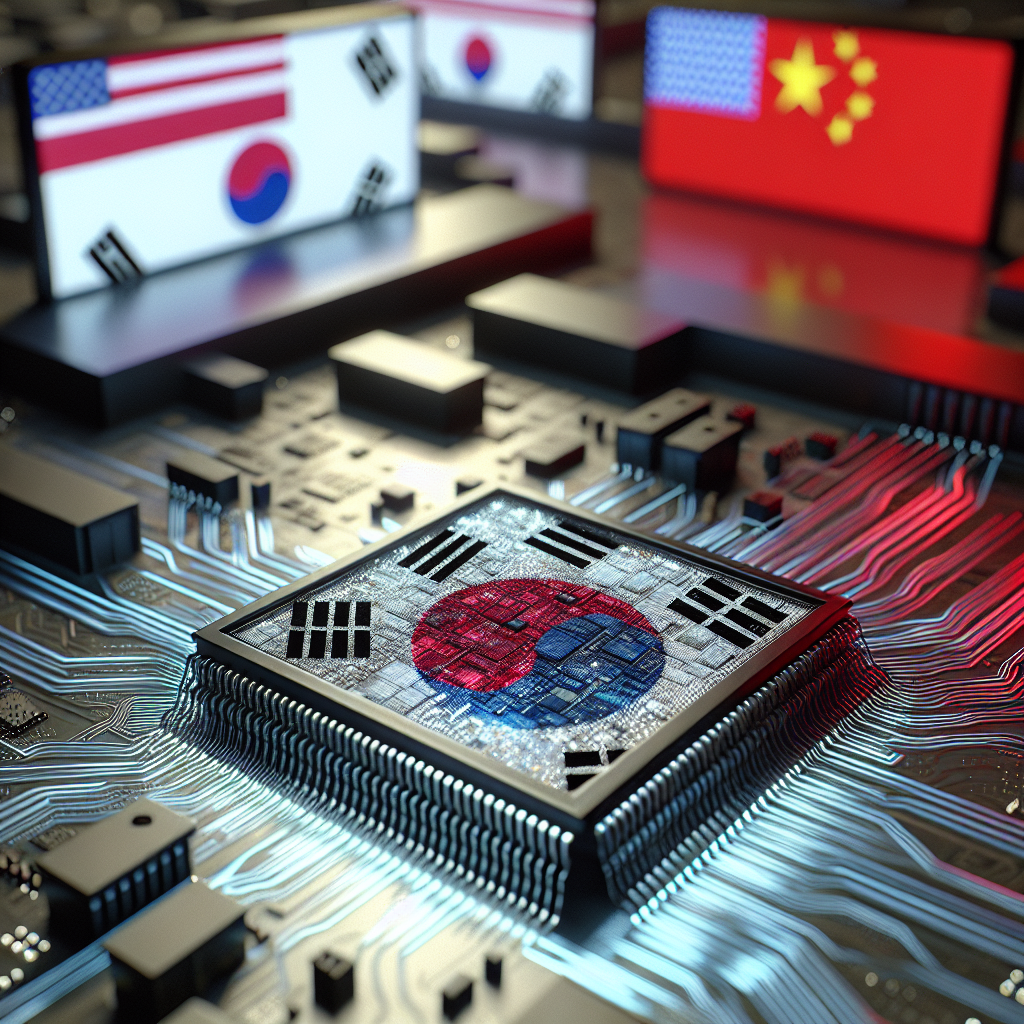South Korea is among the few global economies experiencing a productivity surge from artificial intelligence, but rising U.S.-China tensions over semiconductors could pose challenges to its growth, according to Bank of America analysts.
The semiconductor sector represents 17% of South Korea’s exports, and it “has been the largest beneficiary of the AI boom, with exports up over 50%” year-over-year, according to a Bank of America Global Research report. Analysts believe that South Korea’s investment in AI research and growing AI-related patents “will further advance its position in AI adoption” in the long term.
However, potential geopolitical tensions, particularly between the U.S. and China, could impact the semiconductor supply chain, affecting South Korea’s AI growth. Despite diversifying its chip exports away from China, over 30% of its chip exports in 2023 were to China and Hong Kong, the report noted. Exports to the U.S. were roughly equal.
“Should geopolitical tensions escalate and the U.S. imposes additional trade restrictions on advanced or AI-related chips exports to China, it could significantly undermine the memory semiconductor export in Korea,” Bank of America analysts stated.
South Korean chip manufacturers also rely on China for certain components and equipment. Disruptions in the supply chain could make it harder for these firms to obtain essential chipmaking tools.
The U.S. has reportedly asked South Korea to limit exports to China of equipment and technology used for manufacturing memory chips and advanced logic chips, particularly those more advanced than 14-nanometer and DRAM memory chips beyond 18-nanometer. South Korean officials are reportedly considering the U.S. request due to potential repercussions on key South Korean firms, including Samsung and SK Hynix, which operate in China.
Additionally, the Biden administration is reportedly contemplating using an export control known as the foreign direct product rule on allies that continue to sell chipmaking tools and equipment to China. This rule prohibits the export of any goods to any country if they are manufactured with a certain percentage of U.S. intellectual property components.
